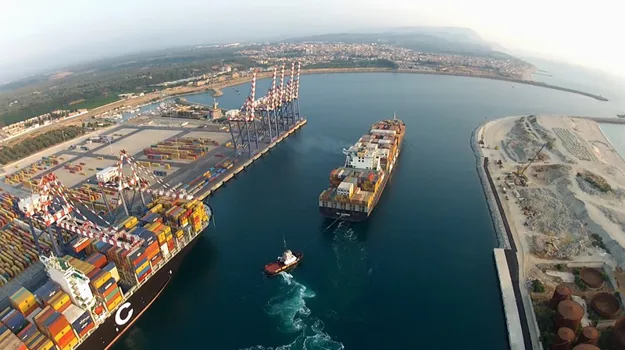Located in the heart of the Mediterranean sea where the East-West maritime routes and the trans-European Helsinki-Valletta corridor meet, Gioia Tauro is the largest transhipment terminal in Italy and one of the leading hubs for container traffic in the Mediterranean basin.
Today, however, it may risk closing due to the ETS-Emission Trading System, a mechanism to regulate polluting emissions. According to the roadmap of the "Fit for 55" project" (which aims at reducing emissions by 55% compared with 1990), in fact, a tax will be applied to maritime transport ,including intercontinental transport, starting from January 2024, to be paid by shipping companies for all ships with a gross tonnage exceeding 5,000 tons.

(Photo source: portodigioiatauro.it)
"All shipowners will have to a pay a tax for the emission of greenhouse gases in the Mediterranean basin. Europe has decided to tax shipowners because it wants to push them to modify the navigation and transport system, however it has adopted a measure that discriminates Mediterranean ports compared to non European ones," explains Andrea Agostinelli, president of the Gioia Tauro Port Authority.
This could in fact pose a competitive advantage for North Africa. "In the future, shipowners will prefer to avoid European ports (Greece, Spain and Malta are also affected, ed.) in favor of the African coast. However emissions are the same whether the ships stop in Gioia Tauro or in the African ports."
Jobs at risk in Gioia Tauro
"We are talking about approximately 1,500 direct workers in the terminals, plus another 3,500 indirect ones. Such a regulation risks making many families go bankrupt," stressed Salvatore Larocca from the Filt Cgil Calabria union.
Europe risks being self-destructive
During the Quarta Repubblica TV show, Shipowner Guido Grimaldi highlighted how the ETS risks creating unfair competition and complicated situations. He also stressed how this tax only involves .5% of global emissions. "We cannot think to reduce global CO2 emissions if the tax is only applied at regional level. A global fund should be set up for all ships to pay a small tax on what produced, so as to involve the whole planet. Otherwise Europe risks being self-destructive, as the ETS will only have an impact on European citizens and businesses."
"For 30 years, the European Commission and the governments did what they could to reduce trucks and shift traffic to maritime routes, the so-called highways of the sea. With this tax, which ranges between €5 and €15 million per ship depending on the emissions produced, we are risking a back shift. Such a burden cannot be carried by the shipowners alone: final consumers, travelers and the goods on the ship will inevitably share part of the tax. Just think for example, about the island cabotage lines to Sicily and Sardinia."
